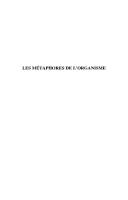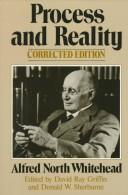| Listing 1 - 10 of 312 | << page >> |
Sort by
|
Book
ISBN: 9783110602784 Year: 2020 Publisher: Berlin De Gruyter
Abstract | Keywords | Export | Availability | Bookmark
 Loading...
Loading...Choose an application
- Reference Manager
- EndNote
- RefWorks (Direct export to RefWorks)
We are still looking for a satisfactory definition of what makes an individual being a human individual. The understanding of human beings in terms of organism does not seem to be satisfactory, because of its reductionistic flavor. It satisfies our need for autonomy and benefits our lives thanks to its medical applications, but it disappoints our needs for conscious and free, self-determination. For similar reasons, i.e. because of its anti-libertarian tone, an organicistic understanding of the relationship between individual and society has also been rejected, although no truly satisfactory alternative for harmonizing individual and social wellness has been put forth. Thus, a reassessment of the very concepts of individual and organism is needed.In this book, the authors present a specific line of thought which started with Leibniz' concept of monad in 17th century, continued through Kant and Hegel, and as a result reached the first Eastern country to attempt to assimilate, as well as confront, with Western philosophy and sciences, i.e. Japan. The line of thought we are tracing has gone on to become one the main voices in current debates in the philosophy of biology, as well as philosophical anthropology, and social philosophy.As a whole, the volume offers a both historical, and systematic account of one specific understanding of individuals and their environment, which tries to put together its natural embedding, as well as its dialectical nature. Such a historical, systematic map will also allow to better evaluate how life sciences impact our view of our individual lives, of human activities, of institutions, politics, and, finally, of humankind in general.
Book
Abstract | Keywords | Export | Availability | Bookmark
 Loading...
Loading...Choose an application
- Reference Manager
- EndNote
- RefWorks (Direct export to RefWorks)
This work begins with a prolegomena on general physiology. Next, special physiology is discussed: Book I-Of the circulating fluids, their motion, and the vascular system; Book II-Of the chemical changes produced in the organic fluids and organised textures under the influence of the vital laws; and Book III-Physiology of the nerves. The translator aimed to render a faithful version of the original. However, in some instances the order in which the facts, and inductions from them, are stated, has been altered, that their connection might be easier of comprehension. In other cases it has been deemed advisable to omit from the text, and to place in the form of notes, discussions on subjects which, though interesting in themselves, did not appear to come within the limits of what is necessary or desirable in a textbook on human physiology. The paragraph where a new topic commences has been headed with a short statement of this in italics. Steel plates and woodcuts, which, the translator hopes will be found useful, have also been added. The additions made by the translator consist almost entirely of newly-discovered facts. French to English standard of measurement has also been taken into account in this translation. (PsycINFO Database Record (c) 2016 APA, all rights reserved).
Book
ISBN: 3518074997 Year: 1980 Publisher: Frankfurt am Main Suhrkamp
Abstract | Keywords | Export | Availability | Bookmark
 Loading...
Loading...Choose an application
- Reference Manager
- EndNote
- RefWorks (Direct export to RefWorks)
Life. --- Organism (Philosophy) --- Teleology. --- Transcendentalism. --- Organism (Philosophy).

ISBN: 2738432182 9782738432186 Year: 1995 Publisher: Paris : L'Harmattan,
Abstract | Keywords | Export | Availability | Bookmark
 Loading...
Loading...Choose an application
- Reference Manager
- EndNote
- RefWorks (Direct export to RefWorks)
Organism (Philosophy) --- Metaphor --- Organisme (Philosophie) --- Métaphore --- Organism (Philosophy). --- Métaphore
Book
Year: 1969 Publisher: New York (N.Y.): Free press,
Abstract | Keywords | Export | Availability | Bookmark
 Loading...
Loading...Choose an application
- Reference Manager
- EndNote
- RefWorks (Direct export to RefWorks)
Cosmologie --- Organism (Philosophy) --- Science --- Cosmology

ISBN: 0029345804 Year: 1978 Publisher: New York (N.Y.) Free Press
Abstract | Keywords | Export | Availability | Bookmark
 Loading...
Loading...Choose an application
- Reference Manager
- EndNote
- RefWorks (Direct export to RefWorks)
Cosmology --- Organism (Philosophy) --- Science --- Philosophy
Book
Year: 2002 Publisher: Washington, D.C. [S.I.]: The President's Council on Bioethics,
Abstract | Keywords | Export | Availability | Bookmark
 Loading...
Loading...Choose an application
- Reference Manager
- EndNote
- RefWorks (Direct export to RefWorks)
Cloning, Organism. --- Ethics. --- United States.
Book
Year: 2002 Publisher: Washington, D.C. : The Council,
Abstract | Keywords | Export | Availability | Bookmark
 Loading...
Loading...Choose an application
- Reference Manager
- EndNote
- RefWorks (Direct export to RefWorks)
Cloning, Organism. --- Ethics. --- United States.
Book
Year: 2002 Publisher: Washington, D.C. [S.I.]: The President's Council on Bioethics,
Abstract | Keywords | Export | Availability | Bookmark
 Loading...
Loading...Choose an application
- Reference Manager
- EndNote
- RefWorks (Direct export to RefWorks)
Cloning, Organism. --- Ethics. --- United States.
Book
Year: 2002 Publisher: Washington, D.C. [S.I.]: The President's Council on Bioethics,
Abstract | Keywords | Export | Availability | Bookmark
 Loading...
Loading...Choose an application
- Reference Manager
- EndNote
- RefWorks (Direct export to RefWorks)
Cloning, Organism. --- Ethics. --- United States.
| Listing 1 - 10 of 312 | << page >> |
Sort by
|

 Search
Search Feedback
Feedback About UniCat
About UniCat  Help
Help News
News